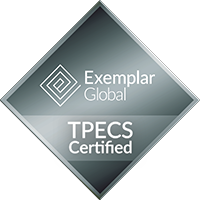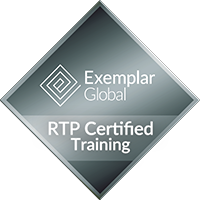| Approx Course Duration *: | Equivalent to Approx. 1hr |
| Access to Course Content: | 18 Months from the date of enrolment |
| Qualification/s: | Introduction to ISO 22000 Clause 9 Performance Evaluation |
| CPD Hours: | 1 Continuing Professional Development Hours |
A stackable, certified microcredential for food industry professionals.
Why this clause matters: Clause 9 ensures your FSMS is not just implemented but proven effective. Through monitoring, measurement, analysis, evaluation, internal auditing and management review, organizations can confirm performance, identify improvement opportunities and meet ISO 22000 compliance requirements.
This microcredential explains the evaluation requirements of ISO 22000:2018. You’ll learn how to plan monitoring and measurement, evaluate results, conduct internal audits and run management reviews that demonstrate food safety performance and compliance.
Who this course is for
Food safety professionals responsible for monitoring, auditing and evaluating FSMS performance.
- FSMS coordinators and quality/compliance managers
- Internal auditors and food safety team leaders
- Executives and managers preparing for management reviews
- Consultants supporting clients through audits and evaluations
What you’ll learn
- How to define monitoring and measurement needs under Clause 9.1
- How to analyze and evaluate FSMS data and results
- How to plan, conduct and report internal audits (Clause 9.2)
- How to plan and conduct management reviews (Clause 9.3)
- How performance evaluation supports continual improvement and certification readiness
What you’ll be able to do
- Plan and implement effective FSMS monitoring and measurement activities
- Analyze and evaluate results to inform decision-making
- Conduct and report internal audits aligned with ISO 22000
- Prepare and present management review inputs and outputs
- Demonstrate FSMS performance and compliance during audits
What’s included
- Focused microcredential on ISO 22000 Clause 9 with clause statements and practical guidance
- Examples of monitoring logs, audit checklists and management review templates
- Knowledge checks and downloadable references for ongoing use
Upgrade your pathway
Stack this credential with additional ISO 22000 microcredentials — or progress into assessed pathways (Specialist, Internal Auditor, Lead Auditor) when you’re ready.
Compare ISO 22000 course options
| Course Type | Includes Assessment? | Suitable Roles | Primary Outcome |
|---|---|---|---|
| Introduction to ISO 22000 | No |
|
Understand ISO 22000 and FSMS essentials; upgradeable to Specialist |
| ISO 22000 Specialist | Yes |
|
Plan, implement and maintain a Food Safety Management System with evidence and templates |
| ISO 22000 Internal Auditor | Yes |
|
Plan, conduct and report FSMS audits that drive corrective action and improvement |
| ISO 22000 Lead Auditor | Yes |
|
Lead audit teams and manage audit programs for certification readiness |
| Stackable Microcredentials | Varies |
|
Add targeted, stackable knowledge that complements core ISO 22000 training |
A stackable, certified microcredential for food industry professionals.
Why this clause matters: Clause 9 ensures your FSMS is evaluated for effectiveness and improvement using monitoring, analysis, audits, and management reviews.
This microcredential contains the following lessons, with a knowledge check and a short-format exam upon completion.
| Lesson Topic | Focus Area | Key Takeaways |
|---|---|---|
| Clause 9.1 | Monitoring, Measurement, Analysis & Evaluation | Define monitoring needs, methods, and analysis for FSMS effectiveness. |
| Clause 9.2 | Internal Audit | Plan and conduct audits that confirm FSMS implementation and drive action. |
| Clause 9.3 | Management Review | Conduct management reviews to assess FSMS performance and resources. |
Course details:
-
Microcredential
-
Approx 1 hours full-time study*
-
Statement of Completion (Digital Credential)
-
Standard: ISO 22000:2018
-
No prerequisites required
* All ATOL courses are delivered in such a way you can work through them at your own pace, the actual time to complete the training may change depending on the individual learners' experience and/or learning style

















 NO PREREQUISITES
NO PREREQUISITES